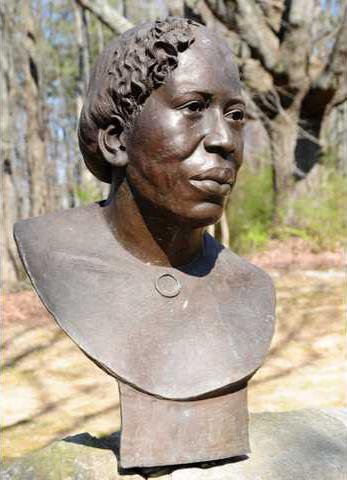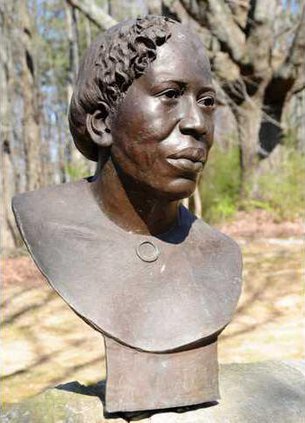Beulah Rucker Museum and Education Center Where: 2101 Athens Highway, Gainesville. Contact: For more information or to make a donation, visit www.beulahruckermuseum.org or call 404-401-6589.
While some people become obsessed with their legacy later in life, Beulah Rucker Oliver knew early on how she would make her mark in the world.
After her first day of school, 5-year-old Rucker returned home and told her family she wanted to be a teacher. Even in the face of adversity and various hardships, Rucker wasn't deterred from her plan.
"If she talked to you, she was going to talk about education. Education was her mantra," said Rojene Bailey, Rucker's grandson.
Though the doors to the school she started in 1914 were shuttered for good in 1958, and she died in 1963, her living legacy is an unmistakable one.
It's a legacy that is steeped in perseverance, shaped by determination and marked with countless successes.
"She was a very, very innovative lady. Being a black female at that time and talking about wanting to start a school, even people in her own community said, ‘Oh, no way. You're a woman. You can't do that,'" Bailey said.
"The first place she was going to build her school was on Norwood Street. The deacon board of the local church said, ‘No way,' and turned against her.
"What did she do? She found another place and started another school."
Rucker would eventually open the Industrial School on Athens Highway in Gainesville.
"She ran the school until it closed in 1958," Bailey said. "They taught first grade through 12th grade."
Born in 1888 as the daughter of illiterate sharecroppers, Rucker knew her share of hardships. Instead of adversity being an obstacle, Rucker treated it as a steppingstone for greater things.
During the Great Depression, when student enrollment dropped, she bought a Model-T Ford to use as a school bus to canvas a larger area for potential students.
Later, military obligations forced male students to drop out of high school to serve in the Korean War. When they returned, Rucker opened a night school for veterans to help them earn their diplomas.
And to help bring in extra money for the school, Rucker would open up the gym for professional boxing and wrestling matches.
"She knew how to make a dollar," Bailey said.
Though the didn't have the most current equipment or newest books, Rucker and her staff didn't allow that to stand in the way of educational excellence.
"It was a good experience," said Betty Hopkins, a Gainesville resident who completed ninth grade at the school.
"We learned all different types of trades, things we can still use today."
In addition to the usual reading, writing and arithmetic, Rucker's students learned skills such as carpentry, canning, crocheting, catering and even hat-making.
"It was a wonderful time," Hopkins said.
The students even took their skills outside of the classroom to maintain and even construct buildings on the campus at 2101 Athens Highway. Some of them are still standing.
Today, the former schoolhouse is the Beulah Rucker Museum, which contains a timeline and photographs documenting the school's history.
"This isn't the end of it - it's kind of like the beginning because we still have a lot more we want to do," said Bailey, volunteer executive director of the Educational Foundation and Museum of Beulah Rucker Inc.
Next door to the museum is the Educational Center, which is available for community rentals. It is also the home base for Generation Inspiration Youth Leadership Academy, open to area high school students as a modern-day reincarnation of Rucker's original vision.
"She was all about educating the whole person, not only in academics, but also in social and cultural ways," said Ruth Bruner, chairwoman of the museum's board of directors.
"That's what she taught her own children and her students. That's what we're trying to do, too."
Bruner, a member of the Gainesville City Council, has been the board's chairwoman since 2007. She came to learn about Rucker's legacy while working with the local chapter of the League of Women Voters with Rucker's daughters, Dorothy Rucker and Carrie Bailey.
Like their mother, both women did a lot to educate young people, Bruner said.
"I admired what they did for the community," she said.
Rucker's contributions to Hall County were recently recognized on a statewide level. Thursday, she was inducted into the Georgia Women of Achievement Hall of Fame. She is only the second Gainesville woman to receive that honor, bestowed every March during Women's History Month by the Georgia Women of Achievement organization out of Macon.
"Hers is an amazing story of how one woman can make a huge difference," Bruner said.
Rucker, along with the other 2012 inductees - Sarah Randolph Bailey and Ethel Harpst - were recognized by a commendation signed by Gov. Nathan Deal.
She may have come from humble beginnings, but Rucker saw no reason each generation couldn't improve upon the last.
"It was automatic that you were going to get an education. It was automatic that you were going to be somebody," Bailey said.
"In my family, everyone is a minimum of a college graduate. That was something that was preached.
"My aunt used to say, ‘The only thing my mama liked more than teaching was more of it.' When you mention the name Beulah Rucker in Gainesville, the mind automatically goes to education. That is her legacy."
Although limited funding has the museum at a standstill, the board of directors is hoping to create more in-depth exhibits portraying a more complete history of the school and education during that period.
"She worked too hard," Bruner said, "and did too much for her memory and legacy to be forgotten."

